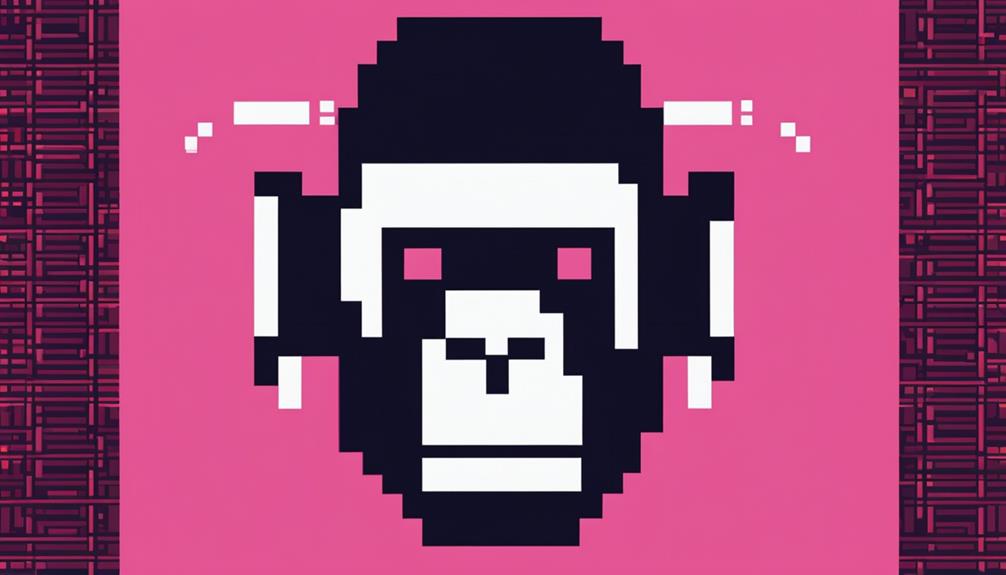In exploring a career in AI versus Ethical Hacking, consider key factors. AI offers high demand for technical skills, global impact, and growth potential up to $167,500. Ethical hacking demands continuous education, problem-solving skills, with salaries reaching $192,000. Ethical hacking stands out with a higher average salary of $128,870 and job stability due to increasing cyber risks. AI requires expertise in machine learning, data analysis, with starting salaries around $18,000. Both fields necessitate ongoing learning to tackle evolving cyber challenges. Investigate further into the distinct advantages and challenges to shape your future in the tech industry.
Key Takeaways
- Ethical hacking offers higher average salaries and job security.
- AI careers have diverse applications and global impact.
- AI demands technical skills while ethical hacking requires strong problem-solving abilities.
- Cybersecurity industry projects significant job growth with increasing cyber risks.
- Both fields require continuous learning to stay ahead of evolving trends.
Pros of AI Career Path
The AI career path presents numerous advantages and opportunities for individuals seeking a dynamic and rewarding professional trajectory. In the domain of AI career paths, the demand for technical skills is high, with data scientists' roles projected to grow substantially by 2035. This growth signifies a lucrative compensation potential for those with expertise in AI, creating a promising outlook for aspiring professionals in the field.
Furthermore, AI offers diverse applications and global impact, fostering innovation, intellectual growth, and creativity. The continuous evolution of AI technologies provides professionals with the chance for ongoing learning and growth, alongside the flexibility of remote work options in a fast-paced industry.
Additionally, entrepreneurial opportunities and cross-industry mobility abound in AI careers, shaping the landscape of future technologies. These factors combine to make the AI career path an enticing choice for individuals with a passion for technical skills and a drive for innovation and growth.
Cons of Ethical Hacking Career

In contrast to the promising outlook of AI career paths, pursuing a career in ethical hacking comes with several drawbacks and challenges that aspiring professionals must carefully consider.
To begin with, an ethical hacking career may require extensive ongoing education and certifications to stay current with evolving technologies and threats. This continuous need for learning can be demanding and time-consuming, as cybersecurity landscapes are constantly changing.
Additionally, ethical hackers may face legal challenges or ethical dilemmas when conducting penetration tests on systems without proper authorization. This aspect of the job can lead to potential legal repercussions if not handled diligently.
Lastly, the nature of ethical hacking work can involve long hours and high-pressure situations, especially when responding to live security incidents. This demanding environment can take a toll on individuals, requiring strong resilience and problem-solving skills to navigate effectively.
Salary Comparison: AI Vs Ethical Hacking

Ethical hacking offers a higher average salary of $128,870 compared to AI's $98,340, reflecting the potential for greater earnings in the cybersecurity field.
Despite this, entry-level positions in ethical hacking start at $44,000, far exceeding the initial salaries in AI roles, which average around $18,000.
Both industries exhibit strong job market demand, with AI professionals projected to see a 35% growth in demand by 2035, and cybersecurity roles expected to grow by 33% by 2032, indicating promising career prospects in both fields.
Salary Differences
When comparing salary differences between AI professionals and ethical hackers, it's evident that ethical hackers tend to command higher average salaries. Here is a breakdown of the salary disparities:
- Salary Range:
The national average salary for AI professionals stands at $98,340, while ethical hackers earn around $128,870 on average.
- Average Salary:
Starting salaries in AI fields begin at $18,000, compared to $44,000 for entry-level ethical hacking positions.
- Earning Potential:
Advanced AI roles can earn professionals up to $167,500, whereas experienced ethical hackers can reach salaries of up to $192,000.
These figures highlight the financial rewards associated with both career paths. While AI offers a solid average salary, ethical hacking presents a higher earning potential, especially for those with experience in cybersecurity. As individuals weigh their career options, understanding these salary differences can play a significant role in their decision-making process.
Job Market Demand
With the increasing demand for skilled professionals in the tech industry, the comparison of job market demand between AI and ethical hacking reveals distinct trends in salary offerings.
Ethical hackers in the cybersecurity field can earn an average of $128,870 annually, surpassing the national average salary of $98,340 for AI professionals. Starting salaries for AI professionals can be as low as $18,000, with experienced individuals potentially earning up to $167,500.
On the other hand, entry-level ethical hackers may earn around $44,000, with advanced positions reaching up to $192,000.
The demand for cybersecurity professionals, including ethical hackers, is projected to grow by 33% by 2032, while AI roles, such as data scientists, are expected to increase by 35% by 2035.
Both fields offer lucrative compensation for experienced professionals, with competitive salaries reflecting the high demand for AI professionals and cybersecurity experts in the industry.
Job Demand Analysis

The job demand analysis in the cybersecurity sector involves examining current trends, required skill sets, and opportunities for career advancement. Understanding the job market trends can help individuals align their skill development with industry needs, ensuring relevance and competitiveness.
Job Market Trends
An in-depth analysis of job market trends in the cybersecurity industry reveals a significant projected increase in job openings by 2025, highlighting the growing demand for skilled professionals in the field. This surge in job opportunities is driven by the ever-evolving cyber threats and the need for robust cybersecurity measures.
Key trends shaping the cybersecurity job market include:
- High Demand: The cybersecurity industry is projected to have 3.5 million job openings by 2025, underlining the demand for skilled professionals to safeguard organizations against cyber threats.
- Job Security: Ethical hacking offers job security as organizations face increasing cyber risks. The shortage of skilled professionals in this area further amplifies the demand for ethical hackers.
- Economic Implications: With the global average cost of a data breach reaching $4.45 million USD in 2023 and the predicted annual cost of cybercrime expected to hit $8 trillion USD in the same year, the need for cybersecurity professionals to protect organizations is paramount.
Skill Set Requirements
Analysis of skill set requirements in the cybersecurity and AI fields reveals distinct educational pathways and certifications essential for professionals to thrive in these rapidly evolving industries. Ethical hackers in cybersecurity need in-depth knowledge of computer systems, IT infrastructure setup, and certifications such as CISA and CISM to combat cyber threats effectively.
On the other hand, AI professionals typically kickstart their careers with a bachelor's degree in computer science, followed by specialized education and certifications from industry giants like Google and Microsoft for AI development.
The demand for skilled professionals in these fields is evident, with cybersecurity specialists projected to experience a 33% growth in demand by 2032, boasting a national average salary of $128,870. In comparison, AI professionals are expected to see a 35% growth in data scientists' roles by 2035, with a national average salary of $98,340.
The collaboration between AI tools and cybersecurity illustrates the importance of diverse skill sets in maneuvering the complexities of these industries and staying ahead of evolving threats and technologies.
Career Growth Opportunities
With a projected 35% growth in AI careers by 2035, professionals in data science can anticipate substantial opportunities for career advancement and development. The job demand analysis reveals promising prospects for individuals considering AI careers or cybersecurity roles:
- AI careers are on the rise, with an estimated 35% growth expected by 2035. Data scientists, in particular, are earning an average national salary of $98,340, indicating a lucrative field with high demand.
- Cybersecurity roles are also in high demand, with a projected 33% growth by 2032. Professionals in this field earn an average national salary of $128,870, showcasing both financial rewards and job security.
- The cybersecurity market is booming, with an estimated worth exceeding $370 billion USD by 2029. This growth indicates a robust industry with ample opportunities for career growth and advancement, making it an attractive option for individuals seeking stability and long-term prospects in their careers.
Skill Sets Needed

What are the essential skill sets required for a career in ethical hacking or AI?
In the field of ethical hacking, proficiency in network protocols, security tools, and programming languages like Python and C++ is vital. Ethical hackers need to be well-versed in penetration testing methodologies, threat intelligence, and incident response techniques to identify and secure vulnerabilities effectively.
On the other hand, AI careers demand expertise in machine learning algorithms, data analysis, and programming languages such as Python and R. AI professionals should excel in statistical modeling, deep learning frameworks like TensorFlow, and natural language processing to develop intelligent systems.
Both disciplines require continuous learning to keep pace with evolving cyber threats and AI advancements.
As technology progresses, the demand for skilled professionals in both ethical hacking and AI is expected to increase. Individuals aspiring to succeed in these fields must focus on honing these essential skill sets to stay competitive and relevant in the rapidly evolving tech industry.
Future Trends in Cybersecurity

In light of the escalating financial impacts and persistent threats posed by cybercrime, the future trends in cybersecurity indicate a pressing need for heightened vigilance and proactive measures to safeguard organizations' digital assets.
The following trends are shaping the landscape of cybersecurity:
- Integration of AI: Artificial Intelligence (AI) is increasingly being utilized in cybersecurity to enhance threat detection and response capabilities. AI algorithms can analyze vast amounts of data in real-time, helping cybersecurity professionals identify and mitigate potential risks more efficiently.
- Growing Demand for Cybersecurity Professionals: With the evolving cyber threats and the predicted increase in cybercrime costs, there is a rising demand for skilled cybersecurity professionals. Organizations are actively seeking experts who can navigate the complex cybersecurity landscape and implement robust defense strategies.
- Adaptation to Evolving Cyber Threats: As cyber threats continue to evolve in sophistication and scale, cybersecurity measures must adapt accordingly. Proactive monitoring, threat intelligence sharing, and continuous training of cybersecurity teams are crucial to staying ahead of malicious actors.
Frequently Asked Questions
Should I Learn AI or Ethical Hacking?
To decide between learning AI or ethical hacking, consider your interests and career goals. AI offers innovation and data-driven roles, while ethical hacking focuses on cybersecurity and identifying vulnerabilities. Both fields have high demand and offer rewarding career paths.
Which Career Is Better AI or Cyber Security?
Exploring the digital landscape is akin to choosing between a sturdy shield or a sharp sword. Cybersecurity, with its high demand and lucrative salaries, offers robust protection, while AI, with its growth potential, wields innovation and strategic prowess.
Will AI Replace Hackers?
AI's advancement poses a question: will AI replace hackers? While AI can automate tasks and enhance cybersecurity, human ethical hackers bring critical thinking and adaptability, excelling in complex scenarios. Collaboration between AI and humans is crucial for peak security.
Is Ethical Hacking a Good Career Option?
Ethical hacking presents a lucrative career path in cybersecurity due to high demand and job security. With cyber crime costs soaring, skilled ethical hackers are crucial in safeguarding against evolving threats, making it a rewarding profession.
Should I Choose AI as a Career?
Choosing AI as a career can lead to high demand, lucrative opportunities, and global impact across industries. With a background in computer science, math, and statistics, pursuing advanced education or certifications in AI can enhance expertise for a successful career.
Conclusion
In summary, the choice between pursuing a career in AI or ethical hacking ultimately depends on individual interests and career goals.
While AI offers opportunities for innovation and advancement in technology, ethical hacking provides an essential role in cybersecurity and protecting sensitive information.
Both fields require distinct skill sets and offer competitive salaries.
As the landscape of technology continues to evolve, professionals in both AI and ethical hacking will play a significant role in shaping the future of cybersecurity.









